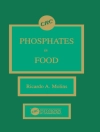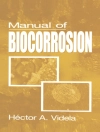This book serves as a comprehensive summary of the priority program SPP 1934, which focused on understanding the dispersity, structure, and phase changes of proteins and bio-agglomerates in biotechnological processes. Through contributions from various research groups, the program explored how sensitive proteins and bio-agglomerates are affected by the process environment during fermentation, downstream processing, and formulation. It investigated these effects across three size scales: microscale, encompassing single proteins, clusters, crystals, and virus-like particles; mesoscale, focusing on cells and cell clusters; and macroscale, examining overall process dynamics. The main objective was to enhance biotechnological process chains by elucidating the mechanical, thermal, and chemical stresses that impact protein and bio-agglomerate structures. By gaining insights into these stressors, the program aimed to enable precise control measures to mitigate denaturation and unfavorable growth of proteins and cells. This compilation seeks to contribute to the optimization of biotechnological processes, facilitating advancements in various industries.
สารบัญ
1. Correlation of structure and properties of enzyme crystals in consideration of downstream processing and formulation.- 2. Multiscale Model-Based Investigation of Functional Macromolecular Agglomerates for Biotechnological Applications.- 3. Modeling-based Monitoring and Control of Protein Crystallization in Bioprocesses.- 4. Changes in structure, dispersity and phase behavior of proteins: The virus-like particles in the presence of nucleic acids.
เกี่ยวกับผู้แต่ง
Prof. Dr.-Ing. Arno Kwade (Technische Universität Braunschweig) worked 9 years as a process engineer in leading industrial positions after finishing his doctorate in 1996. In 2005, he was appointed as Professor and Director of the Institute for Particle Technology (i PAT) at Technische Universität Braunschweig. Today at TU Braunschweig he is Vice President for Transfer and Innovation and spokesperson of the interdisciplinary research centres Battery Lab Factory Braunschweig (BLB) and Center of Pharmaceutical Engineering (PVZ). Moreover, he is vice chairman of BMBF advisory board Battery Research Germany, coordinator of BMBF competency cluster for battery cell production (Pro Zell) and member of Fraunhofer Institute for Thin Films (IST). His research focus lies on developing deep knowledge, process-structure-property relationships and numerical simulations for processes in which particles are mechanically stressed and formulated, from milling and mechanochemical synthesis over mixing and powder handling and characterization to production of drug and bio products and battery electrodes. He received awards like the Lower Saxony Science Award in 2021 and Hans Rumpf medal in 2022. Together with colleagues he published nearly 500 papers which are cited more than 12, 000 times.
Dr.-Ing. Ingo Kampen (Technische Universität Braunschweig) studied biotechnology before completing his doctoral thesis in the field of protein purification in 2005. He then became head of the pharmaceutical and bioparticle technology department at the Institute for Particle Technology (i PAT), where he still works today. His main field of work is the measurement of micromechanical properties of biological particles such as cross-linked protein crystals or individual cells in order to better understand their denaturation and damage during use in various processes. He was managing director of the DFG priority programme 1934 ‘Dispersity, Structure and Phase Changes of Proteins and Bio-Agglomerates in Biotechnological Processes’. He is also heavily involved in teaching and played a key role in the development of the Master’s degree programme in Pharmaceutical Process Engineering at Technische Universität Braunschweig.












